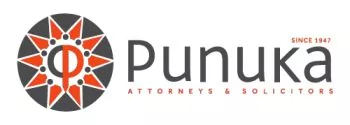- within Tax topic(s)
- with Senior Company Executives, HR and Finance and Tax Executives
- with readers working within the Accounting & Consultancy and Law Firm industries
- within Tax, Corporate/Commercial Law and Employment and HR topic(s)
- with Finance and Tax Executives
- with readers working within the Accounting & Consultancy, Media & Information and Retail & Leisure industries
Controlled Foreign Company (CFC) rules
One notable highlight under the New Tax Act is the introduction of Controlled Foreign Company (CFC) rules, which are designed to prevent Nigerian companies from avoiding tax by keeping profits in foreign subsidiaries instead of bringing the money back into Nigeria.
Section 6(2) of the Nigeria Tax Act provides for a deemed distribution of profits made by a foreign company controlled by a Nigerian company. If the foreign controlled company does not distribute its profits within a year, the portion of those profits attributable to the Nigerian company, and which could have been distributed without harming the foreign company's business, such profit will be treated as if it was actually distributed and included in the profits of the Nigerian Company.
This rule aligns well with global best practices to curb tax avoidance
The NRS is obligated to provide detailed rules for the implementation of the Controlled Foreign Company (CFC) deemed distribution rule under the Act.
Minimum Effective Tax
Additionally, Section 57 of the NTA introduces a 15% minimum effective tax rate (ETR) on the net income of a company. This provision applies to companies with an annual turnover of ₦20 billion or more in the relevant year of assessment, as well as companies that are part of a Multinational Enterprise (MNE) group
The above aims to align the Act with the OECD Pillar two framework. It also seeks to limit base erosion by ensuring a minimum level of tax is paid in Nigeria regardless of tax planning.
The content of this article is intended to provide a general guide to the subject matter. Specialist advice should be sought about your specific circumstances.
[View Source]

